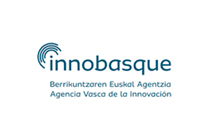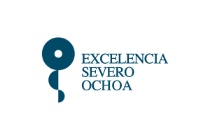Neurodegeneration, brain damage, and rehabilitation

Neurodegeneration, brain damage, and rehabilitation
Language deficits are a common consequence of traumatic brain injury, stroke, epilepsy, tumours, and neurodegenerative diseases. They are a primary cause of disability worldwide and have dramatic social implications. We investigate brain biomarkers for early detection of disease and the potential for language recovery through brain plasticity or compensatory mechanisms in the injured brain. We further translate this knowledge into the development of rehabilitation paradigms.
Neurodegenerative diseases have attracted considerable attention in the scientific community, not only because of the basic insights they provide into cognition, but also because of their extensive societal implications. Latest estimates indicate that in Spain there will be around 1.500.000 Alzheimer patients by the year 2020. In addition, it is estimated that 2% of the elderly population over 65 will have developed Parkinson’s disease. Many neurodegenerative diseases involve a deterioration of core cognitive abilities, including linguistic deficits characteristic of primary progressive aphasias. Since language disorders are one of the earliest expressions of these diseases, they also function as early disease markers, enabling timely treatment and the development of novel therapeutic strategies.
Our overarching goal is to identify the behavioral and neural compensatory mechanisms that emerge in the presence of brain damage, but also the effects of linguistic and non-linguistic interventions on promoting plasticity, both after stroke and in the presence of neurodegenerative diseases. We investigate how linguistic as well as non-linguistic (musical, visuo-spatial) interventions can help stroke patients in the early acute phase to recover cognitive function. Using longitudinal within-subject designs, we carry out systematic evaluations of the effects such interventions have on cognitive, linguistic and brain recovery during the early acute stage, when the potential for neuroplasticity is higher. Furthermore, we design behavioral and computer-based intervention tools to slow down the progressive erosion of linguistic functions and enhance the efficient use of remaining cognitive abilities. In addition, we investigate the efficiency of intervention tools by measuring structural and functional brain and behavioral changes.
Low-grade gliomas represent 15% of all primary brain tumors diagnosed in adults. Due to their slow growth, they allow the brain to progressively adapt and transfer linguistic functions from damaged to healthy areas alleviating severe neurological symptoms. Thus, neuroplasticity mechanisms can be traced before and after surgery, providing new insights into language compensation and network reshaping. By implementing a longitudinal design that maps language function with fMRI and MEG before and after tumor resection, we investigate biomarkers of language recovery in bilingual and monolingual patients. At the clinical level, we translate basic experimental knowledge to inform daily neuro-oncological practice, helping neurosurgeons plan and optimize surgery patient-specific strategies. For this purpose, we develop personalized cognitive tasks that, in combination with direct electrical stimulation during surgery, help identify the functional boundaries of language-relevant tissue and thereby spare language functionality. In collaboration with neurosurgeons we seek to minimize the risk of post-operative language deficits, improving each patient´s quality of life.









